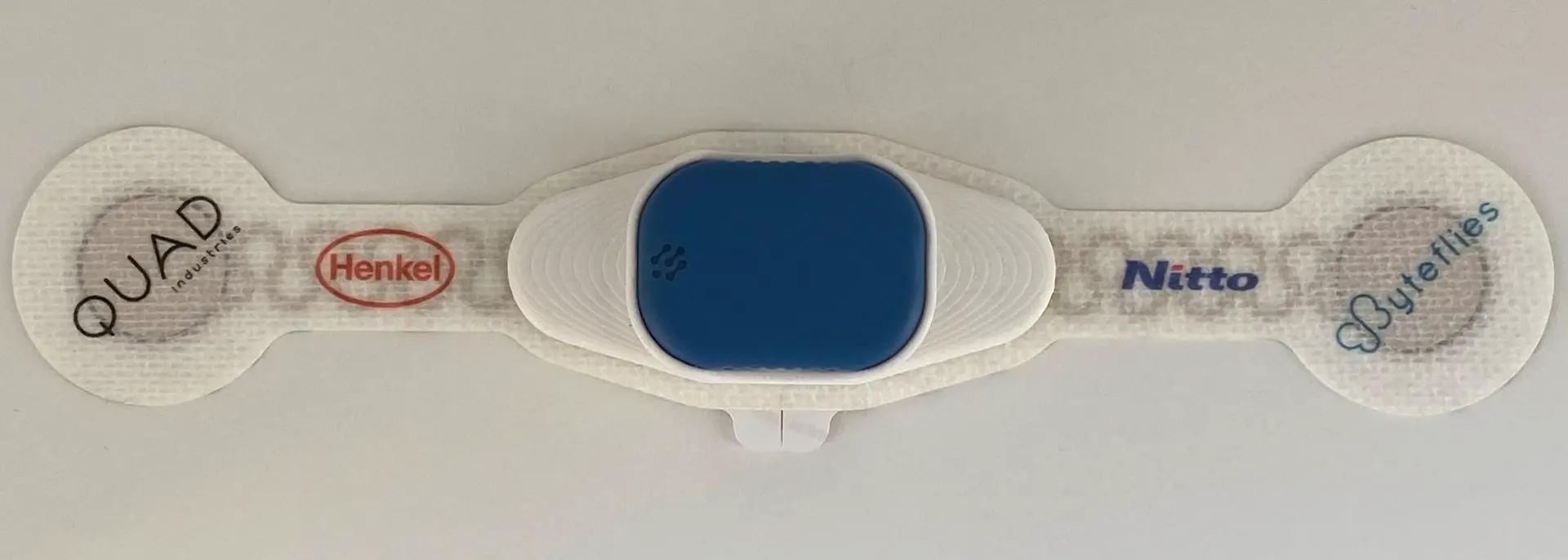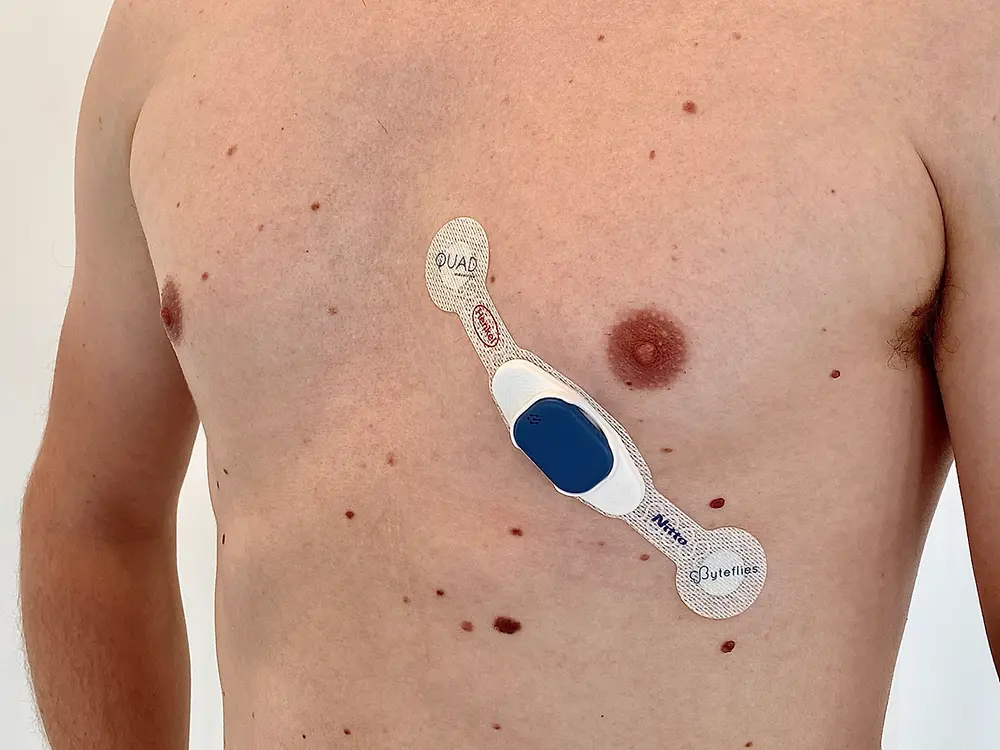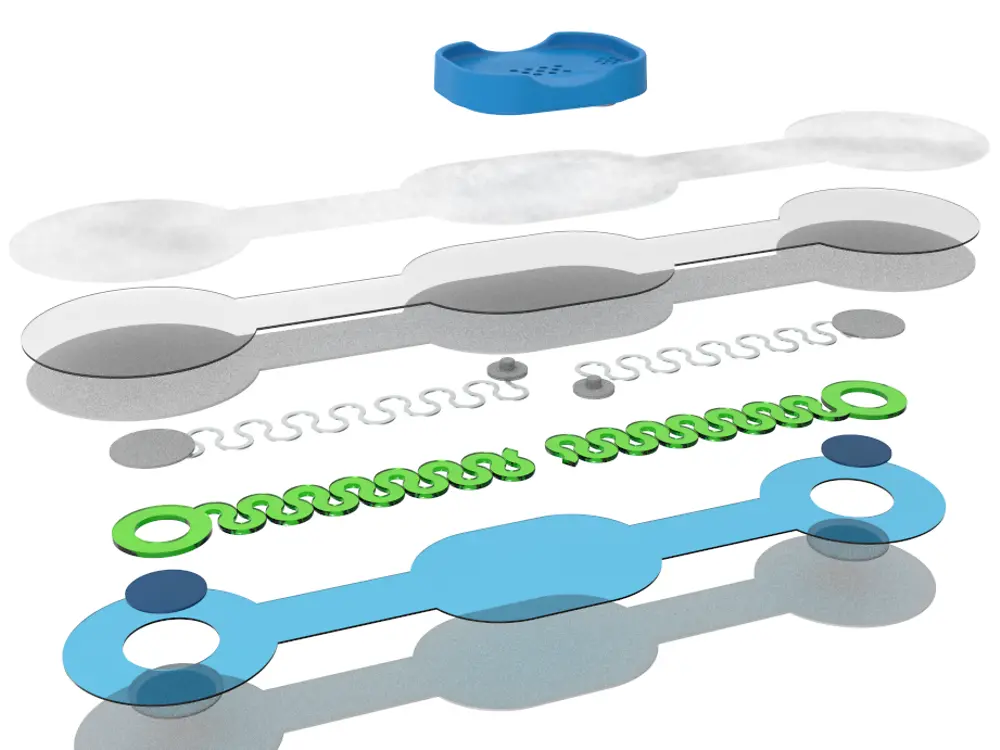The new 'COVID-19 smart patch' is the result of a collaboration between the Belgian companies Byteflies, Melexis, Quad Industries, Televic and Z-Plus and the Belgian departments of multinationals Henkel and Nitto. All partners provided expertise and technology components for the 15 cm long adhesive patch, which can easily applied to the left side of the chest. It has been developed especially for skin-friendly, medical use and contains high-tech electrodes and conductive inks to register vital signs. A ‘sensor dot’ located in the centre of the patch collects the patient’s vital signs and sends all the data to the cloud wirelessly. A mini temperature sensor will also be integrated soon. The healthcare centre’s nurses and the patient’s general practitioner or specialist can then access this cloud data on a user-friendly platform. Thus, the innovative patch can improve the patient follow-up at home and reduces time and effort for medical stuff in data management.
Henkel as a leading global adhesive provider has developed the electrodes and conductive inks. Thanks to the innovative materials, the patch can be used for five days rather than just one day. “The innovative smart patch demonstrates the huge potentials of printed electronics applications and the power of collaborative approaches in the market”, says Stijn Gillissen, Global Head of Printed Electronics at Henkel. “At the moment most COVID-19 patients’ vital signs are recorded manually. The staff in hospitals and care homes need to take these vital signs several times a day and then process the data manually. Our system has the potential to save them a lot of time and reduce the amount of times they are exposed to possible infection.”
In addition, the system also offers great advantages to patients in home quarantine or in care homes as it enables to take and send measurements automatically. They can be certain that the measurements are correct and they are being monitored constantly. This means that they can take the appropriate action quickly and they can contact a care provider at a healthcare centre immediately if necessary. This can offer great reassurance, particularly to elderly people in retirement homes and their families. The system will also reassure general practitioners and home nurses with regard to their patients and ease some of the monitoring burden.
The Oost-Limburg Hospital, Belgium will be the first medical institution to start clinical trials with the 'COVID-19 smart patch'. The hospital will start testing the patch for about 20 of their patients in the next weeks. Based on this test, the partners aim to roll out the system more widely in other hospitals and care homes within the upcoming months.
“The latest global developments have exerted pressure onto the global healthcare systems”, adds Gillissen. “The need for smart technical solutions based on printed electronics such as the new health is increasing as innovative technologies can support medical professionals to remotely monitor patients – allowing for better patient treatments, shorter hospital stays and most importantly more patient convenience.” Thus, Henkel is holding a free webinar on `Printed Electronics Materials for Smart Health Monitoring Applications` on April 28 at 10am and 4pm CET. During the webinar the Henkel experts will showcase latest material developments and will give insights on current key topics in the medical industry. Interested can sign in under the following link: https://register.gotowebinar.com/rt/1697793693944193292












